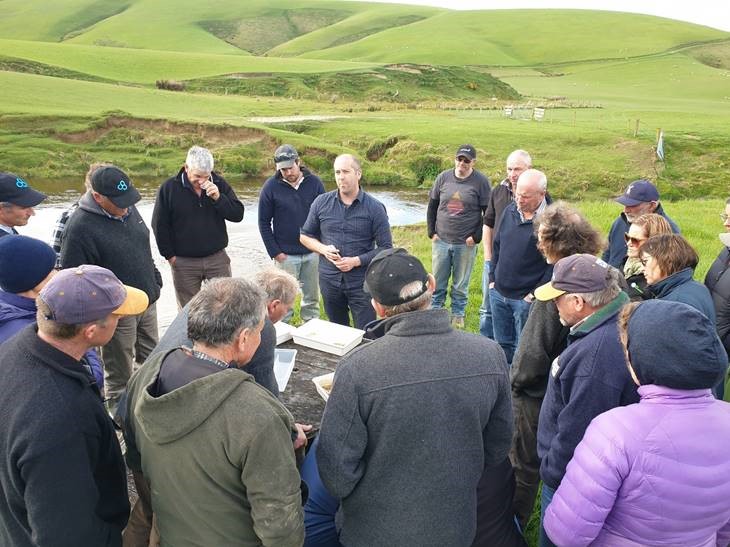Catchment group leaders in Otago are establishing an umbrella organisation to both support existing catchment groups and help new ones get off the ground.
The initiative will provide organisational support for catchment groups & volunteers, help groups secure funding, provide administration and communication support, and facilitate access to experts, information & technology.
Over time, it will also look to establish long-term funding pipelines to support changing needs, and act as a conduit between government, regional authorities, and local stakeholders.
The Otago Regional Council (ORC) put $200,000 aside in this year’s budget to support catchment groups, and convened a Catchment Support Advisory Group made up of staff and councillors, catchment group representatives and a regional coordinator from NZ Landcare Trust.
The Advisory Group’s goal is to create and support an Otago-wide network of catchment groups that are addressing water quality and waterway health, now and for generations to come.
Using the money, ORC is helping the catchment groups to establish an incorporated society. The incorporated society will employ a fulltime regional coordinator and contract more localised coordinators as required to support catchment groups across Otago.
Pomahaka farmer Lloyd McCall, a long-standing member of the Pomahaka Water Care Group, and one of the main organisers behind the collaboration, said that it was on a really exciting trajectory.
“This initiative will support engaged landowners to achieve environmental outcomes specific to their area.
“Providing coordination and administrative support, along with information sharing and connecting with all stakeholders will allow landowners to concentrate on achieving on-the-ground outcomes.
“Lyndon Strang is the establishment chairperson and there is representation from across all of Otago. It’s exciting to see the development of a working relationship between landowners and the ORC in recent years culminating in this support of a catchment group network,” Mr McCall said.
Catchment groups come in many shapes and sizes and already do a lot of great work on the ground said Otago Regional Councillor Bryan Scott.
“Ideally, this strategic support will assist them on their respective journeys, particularly those that are evolving or endeavouring to get to the next level.
“One of the many great things about catchment groups is that regardless of current politics or policies, people of all backgrounds can simply roll up their sleeves and work together to achieve positive things for their waterways and environment.
“The Otago Regional Council is absolutely thrilled to support this initiative."
The umbrella organisation will now work to establish itself as a legal entity and commence recruitment for roles to support catchment groups to improve water quality throughout Otago.

The Waitahuna/Tuapeka Catchment Group during a stream health monitoring session with NZ Landcare Trust.
Further information:
A catchment is a bounded area of land where surface and sub-surface water flows into streams, rivers and wetlands. Land use practices across a catchment—good and bad—can impact the quality of freshwater in those waterways.
Catchment groups are local communities of people working together to understand and improve water quality within a catchment. Catchment groups pursue opportunities to enhance water quality and resolve water quality issues, and they involve diverse membership from the people living in a catchment area.
Catchment groups undertake a range of activities to improve the natural environment, such as monitoring water quality, fencing waterways, riparian planting, protecting native plants, managing pests, and more.
Crucially, catchment groups share knowledge and develop integrated plans for collaborative approaches to good environmental practice.
